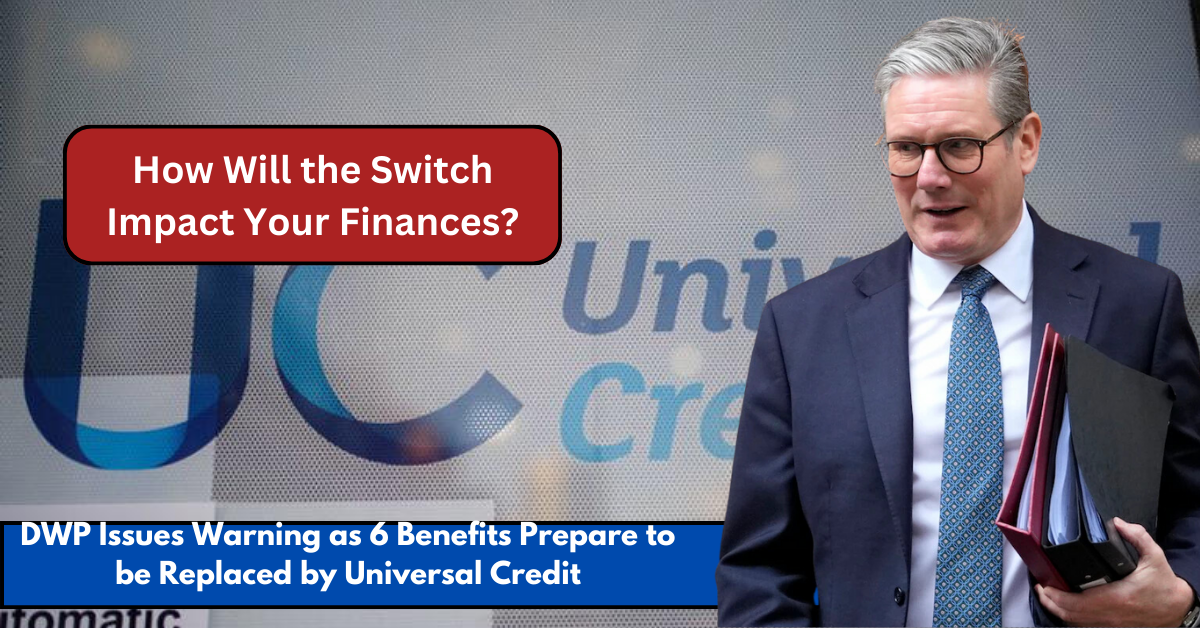The Department for Work and Pensions (DWP) has issued a crucial warning regarding the phased-out benefits that are set to be replaced by Universal Credit. This change is expected to impact millions of individuals who currently receive benefits like Housing Benefit, Income Support, Income-based Jobseeker’s Allowance (JSA), and more.
What is Changing?
The DWP is moving ahead with plans to replace several legacy benefits with the new Universal Credit system. This includes:
- Housing Benefit
- Income-related Employment and Support Allowance (ESA)
- Income-based Jobseeker’s Allowance (JSA)
- Child Tax Credit
- Working Tax Credit
- Income Support
The change will be made gradually, and the DWP aims to complete the migration of claimants to Universal Credit by March 2026. Those affected will receive a “migration notice” by post, which gives them three months to make the switch.
What Happens If You Don’t Switch?
If you don’t apply for Universal Credit within the given timeframe, your current benefits will stop. It’s important to note that once you make the switch to Universal Credit, you cannot go back to your previous benefits. Therefore, it’s essential to think carefully before deciding.
How to Prepare?
Before making the switch, it’s highly advisable to check your personal situation to see how this change will affect your finances. You can use free benefit calculators from websites like Policy in Practice, Entitledto, or Turn2Us. These calculators can give you an idea of the changes, but they shouldn’t be the only factor in your decision.
You should also seek advice from support services such as Citizens Advice or Turn2Us. They can guide you through the process, helping you understand how your payments might change and the possible benefits you could lose or gain.
How Will the Switch Impact Your Finances?
According to the DWP, 55% of claimants will see an improvement in their financial situation under Universal Credit. However, 35% may find themselves at a financial disadvantage, while the remaining individuals will experience no change.
If you are one of those who are financially worse off, you may be eligible for transition payments. These payments are designed to cover any shortfall between your previous benefits and the new Universal Credit payments. However, these transitional payments will continue only until your Universal Credit payment reaches the amount of your previous benefit.
The Waiting Period: Be Prepared
One important thing to consider is the five-week waiting period for your first Universal Credit payment. This means you could face a gap in payments during the transition period. To help with this, some benefits like Housing Benefit, Income Support, Income-related ESA, and Income-based JSA will continue for an additional two weeks, easing the interim shortfall.
Conclusion
The switch to Universal Credit is a significant change for many, but by preparing in advance and seeking advice, you can ensure that the transition goes smoothly. Keep an eye out for your migration notice, and take action as soon as possible to avoid any disruption in your benefits. For more information and to make sure you’re ready for the change, visit trusted resources like Citizens Advice and Turn2Us.
This article has been carefully fact-checked by our editorial team to ensure accuracy and eliminate any misleading information. We are committed to maintaining the highest standards of integrity in our content.
Premlata is a seasoned finance writer with a keen eye for unraveling complex global financial systems. From government benefits to energy rebates and recruitment trends, she empowers readers with actionable insights and clarity. When she’s not crafting impactful articles, you can find her sharing her expertise on LinkedIn or connecting via email at biswaspremlata@gmail.com.
